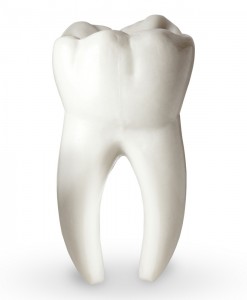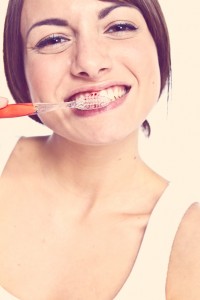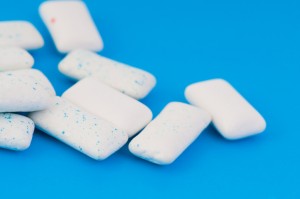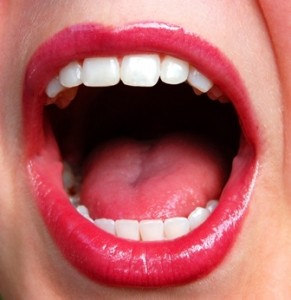Choose cheese for your next sandwich ingredient or salad-topper!
We’ve all heard parents and other adults tell us to eat our vegetables and drink milk so that we can grow up big and strong. But did you know that eating certain types of cheese can also help you stay healthy?
Multiple studies have shown that chewing processed cheese can prevent cavities and other decay from taking place. During a clinical study performed by Dows Institute for Dental Research, it was shown that after chewing just a single cube of cheese, a tooth’s surface re-hardened and strengthened by one hundred percent, thanks to the cheese’s mineral-boosting components.
It’s understood that regular servings of this dairy product prevent the demineralization of teeth, and will help boost the remineralization process. This means that enamel, the protective layer of your pearly whites, is reinforced, and can better shield your teeth from decay-causing bacteria.
It doesn’t hurt that cheese contains substantial amounts of calcium, which has long been known to prevent osteoporosis and keep bones resilient.
Cheeses that can protect and increase your oral health include:
• Brie
• Sharp Cheddar
• Swiss
• Gouda
• Bleu
So don’t skip the cheese on your next sandwich! There are many viable options which can improve oral health. Many doctors also praise its metabolism-boosting effects. You don’t have to cut it completely out of your diet, so those of you who have managed to stick with your New Year’s resolutions can still incorporate dairy intake back in your daily life. (And congratulations on sticking with your goals).
As with any meal, it’s still important to brush and floss after eating. If you’re concerned about your tooth’s sensitivity for any reason, or suspect that you may have a cavity, please contact your dentist at the earliest convenience. No food, diet, or beverage can replace the educated and skilled eye of your dental professional.
 Choose cheese for your next sandwich ingredient or salad-topper! As a child, everyone has heard parents and other adults lecturing on the importance of eating vegetables and drinking milk to grow up big and strong. But did you know that eating certain types of cheese at any age can also help you stay healthy?
Choose cheese for your next sandwich ingredient or salad-topper! As a child, everyone has heard parents and other adults lecturing on the importance of eating vegetables and drinking milk to grow up big and strong. But did you know that eating certain types of cheese at any age can also help you stay healthy?
Multiple studies have shown that chewing processed cheese can prevent cavities and other decay from taking place. During a clinical study performed by Dows Institute for Dental Research, it was shown that after chewing just a single cube of cheese, a tooth’s surface re-hardened and strengthened by over 100%, thanks to the cheese’s mineral-boosting components. It’s understood that regular servings of this dairy product prevent the demineralization of teeth, and will help boost the remineralization process. This means that enamel, the protective layer of your pearly whites, is reinforced, and can better shield your teeth from decay-causing bacteria.
It doesn’t hurt that cheese contains substantial amounts of calcium, which has long been known to prevent osteoporosis and keep bones resilient.
Cheeses that can protect and increase your oral health include:
- Brie.
- sharp cheddar.
- Swiss.
- Gouda.
- Bleu.
Think twice about skipping the cheese on your next sub! There are many benefits of this delicious snack that can improve your oral health. Many doctors also praise its metabolism-boosting effects. You don’t have to cut it completely out of your diet, so those of you who have managed to stick with your New Year’s resolutions can incorporate moderate amounts of dairy intake back in your daily life. (And congratulations on sticking with your goals).
As with any meal, it’s still important to brush and floss after eating. If you’re concerned about your tooth’s sensitivity for any reason, or suspect that you may have a cavity, please contact your dentist at the earliest convenience. No food, diet, or beverage can replace the educated and skilled eye of your dental professional.

 Armed with some information, though, you can have a fun summer while maintaining beautiful and healthy teeth.
Armed with some information, though, you can have a fun summer while maintaining beautiful and healthy teeth. Here’s a brief list of everyday teeth cheats, or simple habits you should adopt to increase the lifetime of your teeth. These little rituals are easy to fit into anyone’s daily routine, and can really save you extensive time (and money) that may otherwise be spent on tooth repairs and restorations.
Here’s a brief list of everyday teeth cheats, or simple habits you should adopt to increase the lifetime of your teeth. These little rituals are easy to fit into anyone’s daily routine, and can really save you extensive time (and money) that may otherwise be spent on tooth repairs and restorations. How much do you think you influence your little one? If you think the answer is “Not much,” guess again. According to a study published by the Journal of Dental Research, parents have an enormous amount of influence on their children, and that extends to areas of health and wellbeing. The study found that if a mother had a cavity, her child was twice as likely as other children to also have a cavity.
How much do you think you influence your little one? If you think the answer is “Not much,” guess again. According to a study published by the Journal of Dental Research, parents have an enormous amount of influence on their children, and that extends to areas of health and wellbeing. The study found that if a mother had a cavity, her child was twice as likely as other children to also have a cavity. When asked to come up with a list of foods that dentists hate, gum will almost certainly appears in your top five. After all, this sticky, chewy candy can leave your jaw sore and work its way into tricky places in your smile – not to mention that it’s a natural enemy of traditional braces. But have you heard that the treat can actually improve the health of your teeth and gums instead of hurting them? It’s true! The American Dental Association has officially recognized that specific types of sugarless chewing gum have been scientifically proven to bolster optimal dental health.
When asked to come up with a list of foods that dentists hate, gum will almost certainly appears in your top five. After all, this sticky, chewy candy can leave your jaw sore and work its way into tricky places in your smile – not to mention that it’s a natural enemy of traditional braces. But have you heard that the treat can actually improve the health of your teeth and gums instead of hurting them? It’s true! The American Dental Association has officially recognized that specific types of sugarless chewing gum have been scientifically proven to bolster optimal dental health. building blocks for any healthy lifestyle, but they can significantly lower the possibility of many diseases. As always, regular brushing, flossing, and other beneficial dental care are your best tools for preventing the development of many diseases, and can aid in the fight against cancer. If you are already affected by oral cancer, this information may also help during your treatment and after.
building blocks for any healthy lifestyle, but they can significantly lower the possibility of many diseases. As always, regular brushing, flossing, and other beneficial dental care are your best tools for preventing the development of many diseases, and can aid in the fight against cancer. If you are already affected by oral cancer, this information may also help during your treatment and after. Now that we’re heading into warmer weather, people are likely to spend more time outdoors doing a variety of activities, including sports. Taking advantage of the higher temperatures to get some exercise and to spend time with friends is a good thing, of course, but athletes should keep a few pointers in mind related to their oral health.
Now that we’re heading into warmer weather, people are likely to spend more time outdoors doing a variety of activities, including sports. Taking advantage of the higher temperatures to get some exercise and to spend time with friends is a good thing, of course, but athletes should keep a few pointers in mind related to their oral health. The health benefits of weight loss are many. Being overweight can contribute to heart disease, heart attack, joint pain, and diabetes. And now, research shows that being overweight can put you at risk for another type of health problem: gum disease. You may not connect your weight with your oral health, but the truth is that your smile can benefit from you maintaining a healthy weight.
The health benefits of weight loss are many. Being overweight can contribute to heart disease, heart attack, joint pain, and diabetes. And now, research shows that being overweight can put you at risk for another type of health problem: gum disease. You may not connect your weight with your oral health, but the truth is that your smile can benefit from you maintaining a healthy weight. Flossing is a crucial part of dental hygiene, and one that shouldn’t be taken lightly; after all, it’s a tried-and-true method for getting rid of stubborn food particles that settle in hard-to-reach places between teeth, as well as an effective way to disrupt cavity-causing bacteria and keep them getting too comfortable. Of course, you might be thinking: how hard is it to drag some string between your teeth? Harder than you might think. Countless people make casual errors every day when flossing, and while it might not seem like a big deal at the time, you could find yourself in need of fillings or other restorative dental work before you know it. Here are five common mistakes that are made during flossing that you should watch out for:
Flossing is a crucial part of dental hygiene, and one that shouldn’t be taken lightly; after all, it’s a tried-and-true method for getting rid of stubborn food particles that settle in hard-to-reach places between teeth, as well as an effective way to disrupt cavity-causing bacteria and keep them getting too comfortable. Of course, you might be thinking: how hard is it to drag some string between your teeth? Harder than you might think. Countless people make casual errors every day when flossing, and while it might not seem like a big deal at the time, you could find yourself in need of fillings or other restorative dental work before you know it. Here are five common mistakes that are made during flossing that you should watch out for: Choose cheese for your next sandwich ingredient or salad-topper! As a child, everyone has heard parents and other adults lecturing on the importance of eating vegetables and drinking milk to grow up big and strong. But did you know that eating certain types of cheese at any age can also help you stay healthy?
Choose cheese for your next sandwich ingredient or salad-topper! As a child, everyone has heard parents and other adults lecturing on the importance of eating vegetables and drinking milk to grow up big and strong. But did you know that eating certain types of cheese at any age can also help you stay healthy?